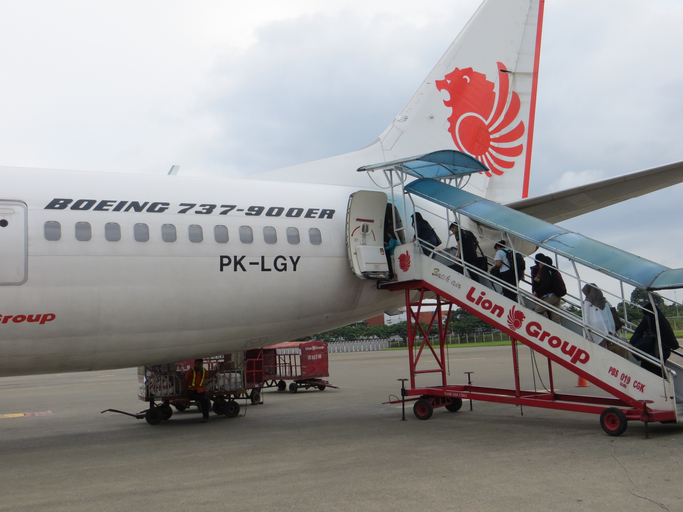Boeing Co has settled the first claims stemming from the crash of a Lion Air 737 MAX in Indonesia, a U.S. plaintiffs’ lawyer said, and three other sources said that families of those killed will receive at least $1.2 million apiece.
Floyd Wisner of Wisner Law Firm said he has settled 11 of his 17 claims against Boeing on behalf of families who lost their relatives when a brand-new MAX crashed into the Java Sea on Oct. 29 soon after take-off, killing all 189 aboard.
Boeing spokesman Gordon Johndroe declined comment. Boeing did not admit liability in its 11 settlements, Wisner said.
The claims, each representing one victim, are the first to be settled out of some 55 lawsuits against Boeing in U.S. federal court in Chicago and could set the bar for mediation talks by other Lion Air plaintiffs’ lawyers that are scheduled through next month, three people familiar with the matter said.
Wisner said he could not disclose the amount of the settlements because of a confidentiality agreement with Boeing.
The three people familiar with the matter said families of Lion Air victims, who were nearly all from Indonesia, are set to receive at least $1.2 million each. That amount would be for a single victim without any dependents.
The people spoke on condition of anonymity because the negotiations are confidential.
Boeing’s shares rose as much as 2 percent on Wednesday.
Awards can vary according to victims’ nationality, age, marital status, income, dependents and life expectancy. The Lion Air victims were mainly from Indonesia, where incomes and crash awards tend to be lower than in the United States.
The manufacturer is also facing nearly 100 lawsuits over an Ethiopian Airlines 737 MAX crash on March 10 that killed 157 people on its way from Addis Ababa to Nairobi.
Lawsuits over both crashes highlight the role of MCAS automated software that pushed the nose of the two planes lower. They claim that design flaws allowed erroneous sensor data to set off the automated system and overwhelm pilots.
The Lion Air lawsuits are being mediated before Donald O’Connell, a retired judge of the Cook County Circuit Court in Illinois, a jurisdiction often used for air accidents situated in Chicago, where Boeing is based.
‘COMMON LINK’
Lawyers for the Ethiopian Airlines crash are pushing for a jury trial in U.S. federal court in Chicago, demanding to know why Boeing allowed the 737 MAX to go on flying after the Lion Air incident.
The planemaker has said it is sorry for the lives lost in both crashes but has stopped short of admitting any fault in how it developed the 737 MAX or the software.
It has said the two crashes – like most air disasters – were caused by a chain of events, with a common link between the two MAX accidents being “erroneous activation” of MCAS.
In the Lion Air case, families of victims who were married with one to three children could receive between $2 million and $3 million, the people said.
Industry veteran Wisner said he had settled lawsuits for other plane crashes that took place in Indonesia in years prior to the Lion Air 737 MAX crash for around $500,000 or $600,000. He will receive one third of his Lion Air settlements in fees.
The settlements come on top of $144,500 that Boeing is paying out of a $50 million financial assistance fund it set up in July for families of victims of the two crashes.
Any settlement or jury award in the Ethiopian cases is likely to be larger than for Lion Air, the people said.
Many of the Ethiopian crash victims, who came from 35 different countries, included United Nations employees and young working adults in their twenties or thirties. There were nine U.S. citizens among the victims.
Boeing is also the target of a U.S. Department of Justice criminal investigation into the development of the 737 MAX.
The 737 MAX has been grounded worldwide following the Ethiopian crash while Boeing develops software updates and new pilot training. It has already estimated a cost of more than $8 billion from the grounding, mainly due to production setbacks and compensation it will owe airlines that have canceled thousands of flights as they manage schedules without the fuel-efficient jetliner they had counted on.
Boeing has said it hopes the 737 MAX jetliner will fly again in the United States early in the final quarter of this year.






